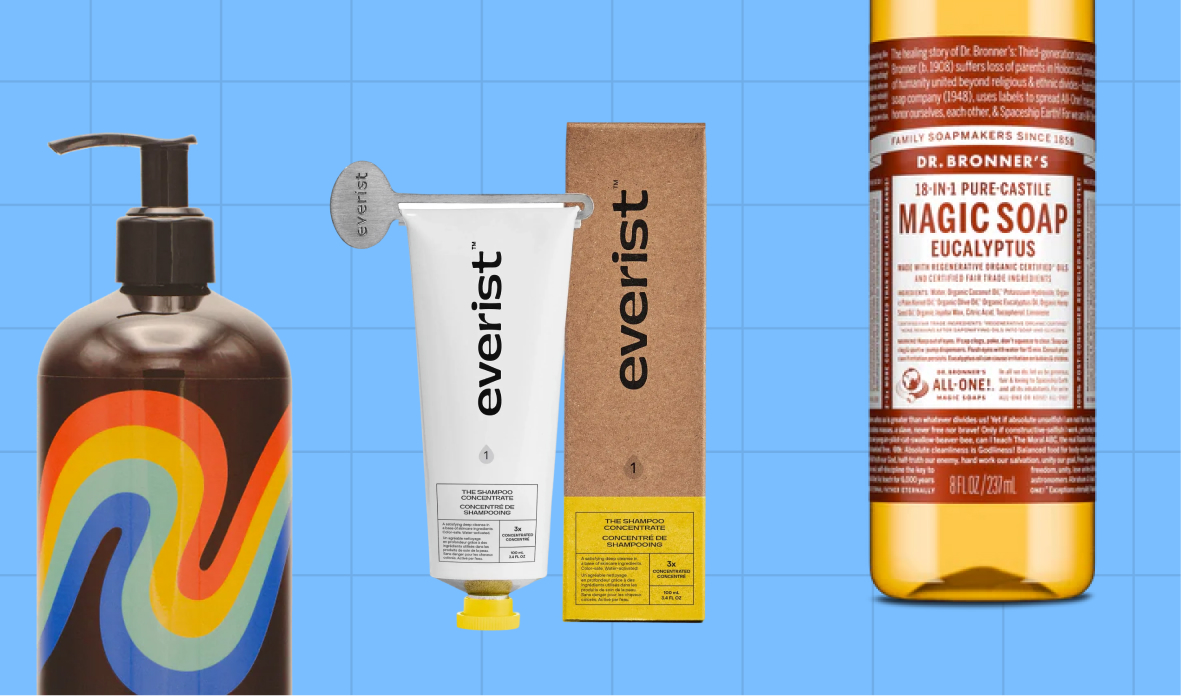7 Natural, Homemade Alternatives to Fabric Softener

Join the community





Fabric softeners might make our clothes feel cozy and fresh, but that comes at a cost. They contain harmful petrochemicals that don't biodegrade easily and come packaged in single-use plastic.
These chemicals build up on your clothes over time, reducing fabric absorbency, which makes it harder to get them clean over time. Plus, traditional fabric softener can damage washing machines or compromise the flame-retardant properties of safety wear.
But you don't have to live without soft, fresh-smelling laundry. Here are some natural, homemade fabric softeners that get the job done without the downsides:
{{cta-join2}}
White Vinegar
White vinegar is a fantastic natural alternative to fabric softener. You can add 1/4 to 1/2 cup of white vinegar to your washing machine's fabric softener compartment or during the rinse cycle. It softens fabrics, eliminates static cling, and breaks down detergent residue. While you might notice a vinegar smell initially, it disappears once the clothes are dry. Also, regular use of vinegar helps maintain your washing machine by preventing odor-causing bacteria.
Baking Soda
Baking soda is a budget-friendly, natural fabric softener that both softens clothes and removes unpleasant odors from fabrics. Add between half a cup to one cup of baking soda to your washing machine during either the regular wash or rinse cycle. For first-time users, start with half a cup. Baking soda doubles as a stain remover — simply make a paste with water and apply it to stains before washing.
Epsom Salt
Epsom salt offers a clever way to soften your laundry naturally by counteracting hard water minerals like calcium and magnesium that can make detergent less effective. During the rinse cycle, add 2-3 tablespoons of this mixture to soften your clothes. You can even add 20-30 drops of your preferred essential oil to add a pleasant fragrance.
Vegetable Glycerin
Vegetable glycerin is another natural fabric softener. The process is simple: mix half a cup of vegetable glycerin with a gallon of water, add some essential oils for fragrance (optional), and use half a cup of this solution in your washer's fabric softener dispenser or during the rinse cycle. It's completely water-soluble and won't leave any residue on your clothes.
Wool Dryer Balls
Wool dryer balls are a natural, reusable alternative to traditional fabric softeners that pack multiple benefits into one simple solution. Made from natural wool, these balls work by separating fabrics in your dryer, which not only softens your clothes but also reduces drying time, static, and wrinkles. They're especially great for people with sensitive skin since they're free from fragrances and chemicals. Using them is straightforward — just toss three balls in with your laundry and run a normal cycle. Some wool dryer balls can last up to 1,000 loads, making them a sustainable alternative to single-use dryer sheets.
Hair Conditioner
You can even repurpose your hair conditioner as a fabric softener: Mix one cup of hair conditioner with 3-4 cups of distilled water in a clean, empty bottle. After giving it a good shake, add half a cup of this mixture during your laundry's rinse cycle. Not only will this DIY solution make your clothes smell fresh, but it'll also leave them feeling softer and more comfortable to wear.
Air Drying
Air drying your clothes is a simple and effective alternative to using fabric softeners. By hanging your clothes outdoors or on an indoor drying rack, you can naturally prevent stiffness and reduce static cling that often occurs from machine drying. This method works particularly well for specific types of clothing like activewear, knits, and delicates, and helps avoid the stiffness that can result from keeping clothes in the dryer for too long.








.jpg)



